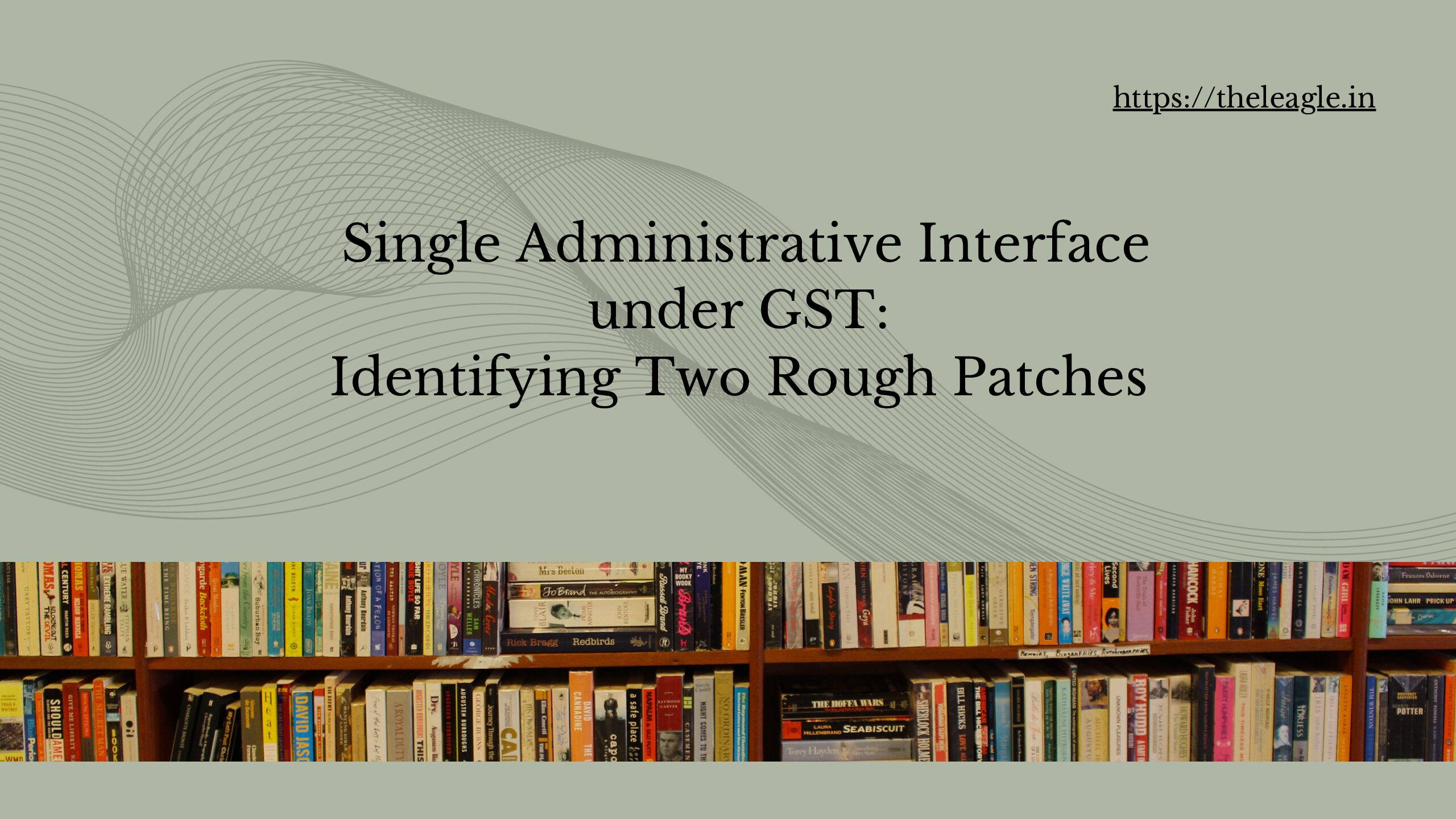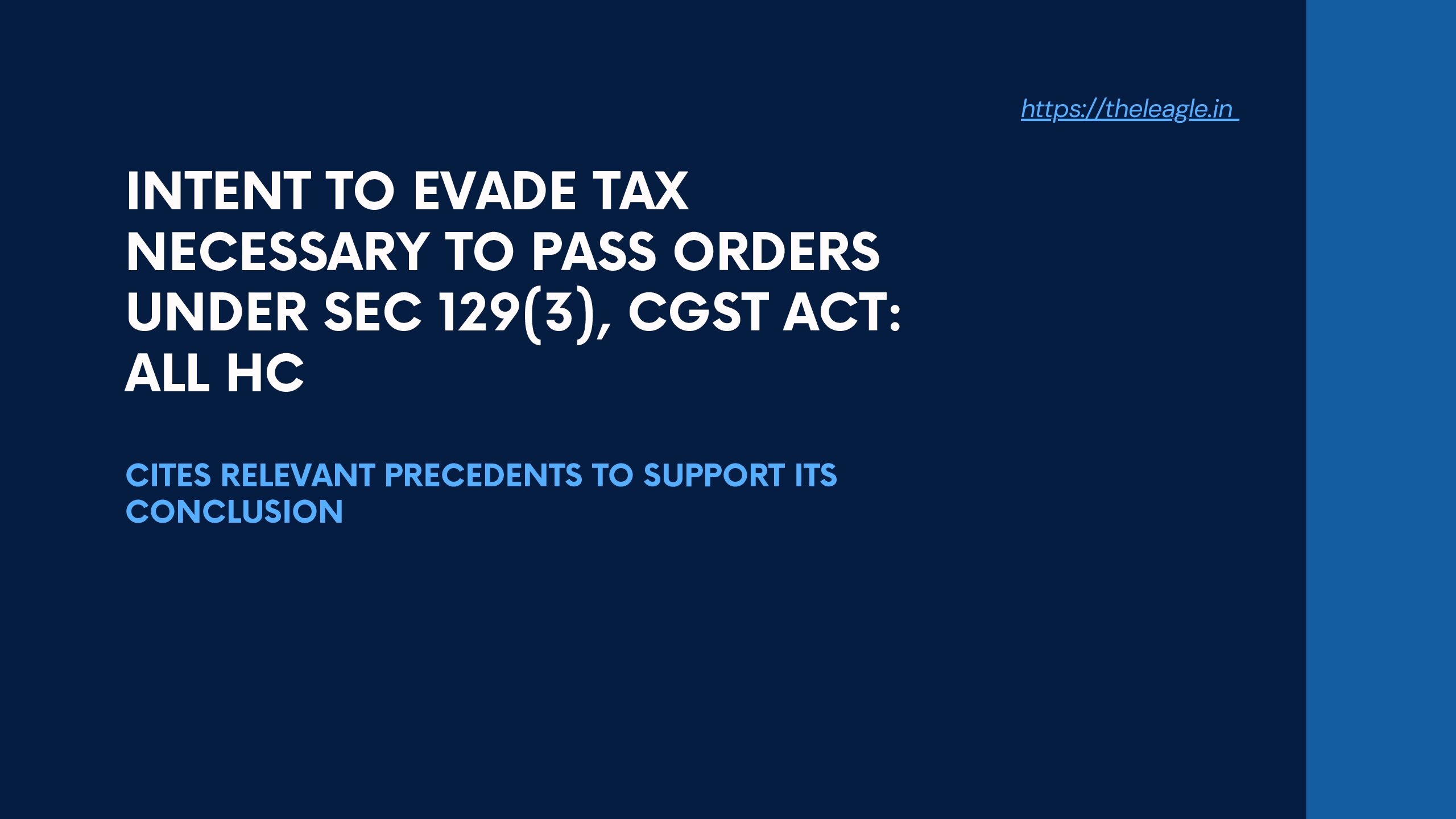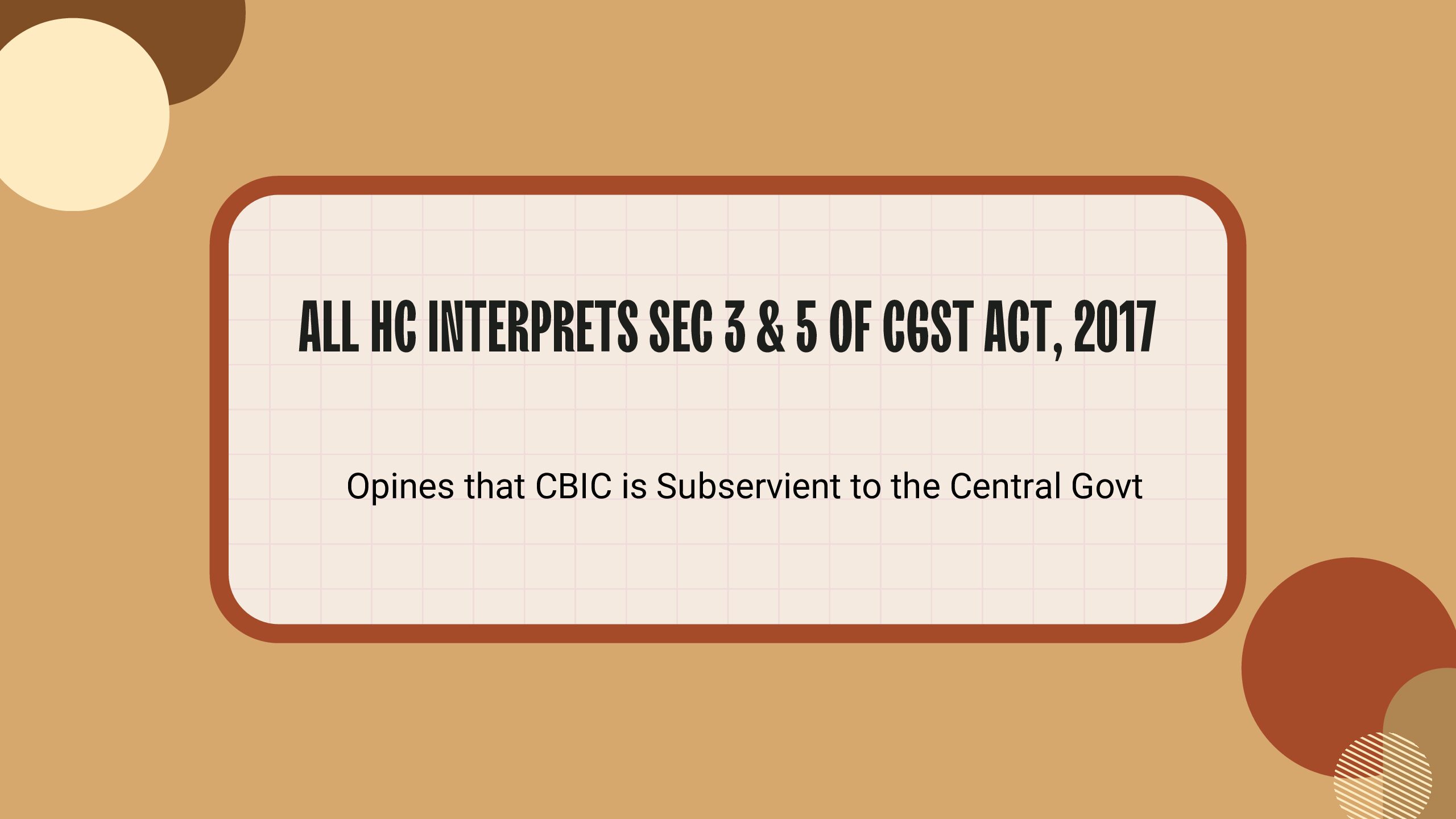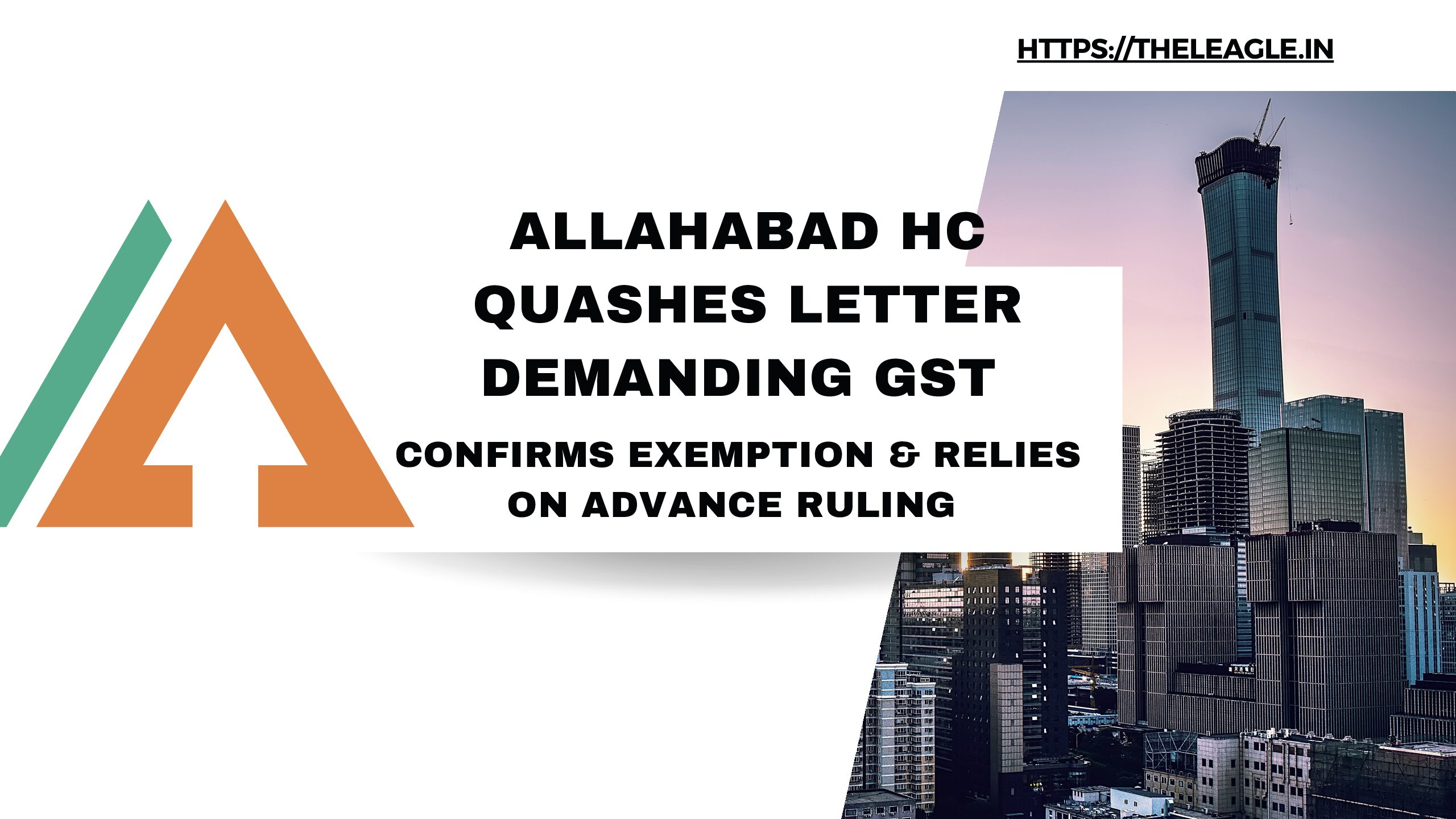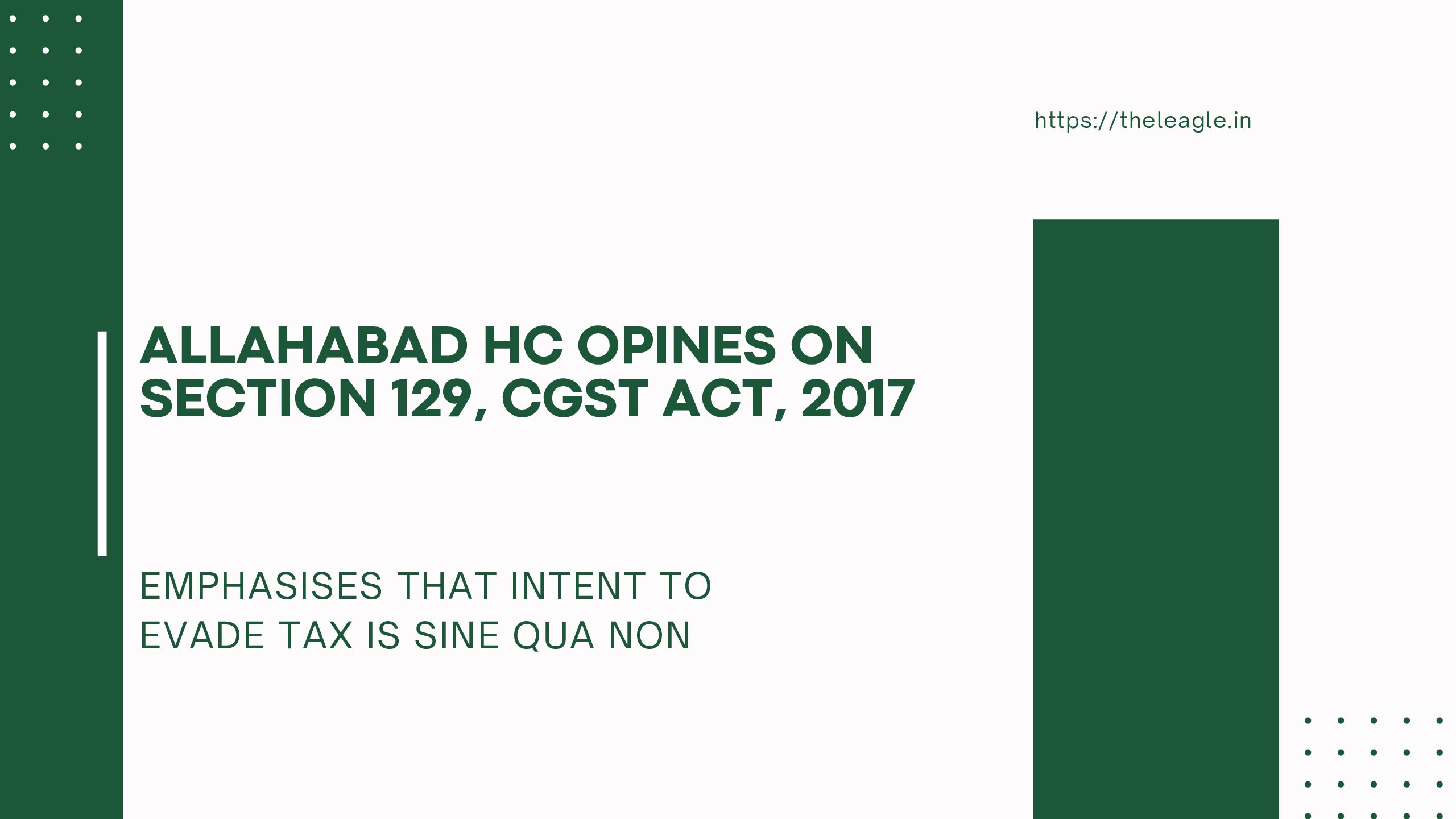GST is a dual nationwide tax implying that both the Union and States concurrently levy it on supply of goods or services. While a single indirect tax jointly administered by the Union and States is supposed to augur well for ease of doing business and improve other economic efficiencies, it also requires demarcating administrative responsibilities to prevent the taxpayer from being subjected to proceedings by two different authorities. One such issue is demarcating and assigning tax base to tax authorities of the Union on one hand and the States/Union Territories on the other. GST laws anticipated overlap of tax administration in a dual tax such as GST and incorporated a specific provision – Section 6, CGST Act and Section 6 in SGST Act/UTGST Acts to prevent taxpayer harassment.
Section 6, CGST Act, 2017 is pari materia with SGST and UTGST and provides for the following:
First, officers appointed under SGST and UTGST Acts are authorized to be proper officers for purposes of CGST Act as well;
Second, where a proper officer issues an order under CGST Act he shall also issue an order under the SGST or UTGST Act under intimation to the jurisdictional officer of State tax or UT tax.
Third, where a proper officer under the SGST Act or UTGST Act has initiated any proceedings on a subject matter, no proceedings shall be initiated by the proper officer under CGST Act on the same subject matter.
Finally, any proceedings for rectification, appeal, and revision, wherever applicable, of any order passed by an officer under CGST Act shall not lie before an officer appointed under the SGST Act or UTGST Act.
While the cross empowerment of officials is a sound policy encoded in Section 6, there are two dominant uncertainties that prevail in the interpretation and implementation of the impugned provision: first, is the meaning and scope of the term ‘intelligence-based’ enforcement action’; second, is the implication of the term ‘proceedings on the subject matter’. The former term is not used in Section 6 but is proving to be crucial in allocation of tax administrative responsibilities. I will discuss the uncertainties that revolve around both phrases.
Intelligence-Based Enforcement Action
The 9th GST Council meeting discussed the issue of cross empowerment of tax officials under GST. There was detailed discussion on the issue of allocation of tax base as per turnover of the taxpayer, powers relating to audits, and issues relating to administration of IGST. In so far as is relevant to the current discussion, the GST Council agreed that:
Of the total number of taxpayers below Rs. 1.5 crore turnover, all administrative control over 90% of the taxpayers shall vest with the State tax administration and 10% with the Central tax administration;
In respect of the total number of taxpayers above Rs. 1.5 crore turnover, all administrative control shall be divided equally in the ratio of 5O% each for the Central and the State tax administration; (para 28)
In view of the same, the CBIC issue a Circular reiterating the same as well as prescribing broad guidelines for computing turnover of the taxpayers.
Apart from the above division of tax base to smoothen administration of GST, there was another agreement reached in the GST Council, i.e., both the Union and State administrations shall have the power to take ‘intelligence-based enforcement action’ across the entire value chain. The import of the GST Council’s above decision was clarified via a letter issued on 05. 10. 2018. Two important things that were clarified through the letter were:
First, that irrespective of assignment of taxpayer base as per turnover, both the Union and State are empowered to initiate intelligence-based enforcement action on the entire tax base which includes entire process of investigation, issuance of SCN, recovery, appeal, etc.
Second, it added that:
If an officer of the Central tax authority initiates intelligence based enforcement action against a taxpayer administratively assigned to State tax authority, the officers of Central tax authority would not transfer the said case to its Sate tax counterpart and would themselves take the case to its logical conclusions. (para 4)
The initial allocation of taxpayer base is thus subject to intelligence-based enforcement action, and once the latter is initiated by any authority it will retain the jurisdiction over that particular taxpayer and take the case to its logical conclusion.
Reading both the above legal instruments alongside minutes of the 9th GST Council meeting clarify the division of taxpayer base amongst the State and Union tax officers, but the term ‘intelligence-based enforcement action’ adds a layer of uncertainty. To what extent and what action exactly amounts to such an ‘intelligence-based action’ remains unclear. The phrase indicates that the action is based on some information obtained by tax officers and not a random scrutiny of taxpayer. But, the scope and limit of the phrase needs a more precise understanding which is currently lacking. And the same will, hopefully, be available as the jurisprudence on the issue develops.
‘Proceedings’ on Same ‘Subject-Matter’
The other prong of uncertainty is if a taxpayer can be subjected to proceedings on the same subject matter by two different authorities – at the Union and State level. Section 6(2)(b) states:
… where a proper officer under the State Goods and Services Tax Act or the Union Territory Goods and Services Tax Act has initiated any proceedings on a subject matter, no proceedings shall be initiated by the proper officer under this Act on the same subject matter. (emphasis added)
While Section 6(2)(b) uses the phrases ‘proceedings’ and ‘subject matter’, they are not defined under GST laws. Courts in certain cases have attempted to unravel the meaning of the two terms ‘proceedings’ and ‘subject-matter’. The most prominent attempt was by the Allahabad High Court in GK Trading case where the petitioner’s contention was that once the Deputy Commissioner, Ghaziabad has conducted survey of its business premises and is investigating the matter pursuant to the survey, the issuance of summons by another authority – DGGSTI, Meerut – under Section 70 of CGST Act, 2017 is barred by Section 6(2)(b).
The Allahabad High Court relied on previous judicial decisions – largely unrelated to GST – to conclude that the term ‘inquiry’ used in Section 70, under which summons were issued and the term ‘proceedings’ used in Section 6(2)(b) had different meanings. The High Court noted that the term ‘inquiry’ under Section 70 was limited to requiring the presence of a person to produce evidence or documents and cannot be intermixed with steps that may ensue on conclusion of the inquiry. Noting that words ‘proceeding’ and ‘inquiry’ are not synonymous, the High Court held that:
The word “proceedings” used in Section 6(2)(b) is qualified by the words “subject-matter” which indicates an adjudication process/ proceedings on the same cause of action and for the same dispute which may be proceedings relating to assessment, audit, demands and recovery, and offences and penalties etc. These proceedings are subsequent to inquiry under Section 70 of the Act. (para 17)
The above observation implies that the power of inquiry under Section 70 – and issuance of summons – can be invoked against a taxpayer even if proceedings have been initiated by another tax authority, but the steps subsequent to inquiry cannot be taken if proceedings are underway. What is the point of inquiry if Section 6(2)(b) bars the inquiry authority to take steps subsequent to an inquiry? The answer is unclear, and the High Court does not delve into the issue, and rightly so. Nonetheless, the High Court’s strict interpretation of the relevant statutory provisions ensure that the bar under Section 6(2)(b) has been interpreted in a strict fashion, but the implications of the High Court’s interpretation will only become clear in due time.
Conclusion
On both the above discussed issues, single-interface GST administration is likely to remain in a state of flux. Given that ‘intelligence-based enforcement action’ is a phrase of uncertain scope and the words ‘proceedings’ and ‘subject-matter’ are not defined under the GST Acts, the tax officers are likely to interpret in differing manner and as per the facts of each case. While the Allahabad High Court has tried to demarcate the scope of latter, and to some extent succeeded, the meaning of the phrase ‘intelligence-based enforcement action’ remains even more elusive. And we are likely to witness some disputes over the same.
